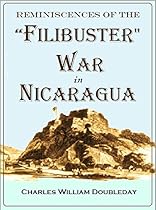Reminiscences of the "Filibuster" War in Nicaragua

| Author | : | |
| Rating | : | 4.25 (893 Votes) |
| Asin | : | B00W0S1YMS |
| Format Type | : | |
| Number of Pages | : | 244 Pages |
| Publish Date | : | 2016-11-30 |
| Language | : | English |
DESCRIPTION:
fillabuster war reveiw. An amazing true adventure story.Though the author claims he was fighting for his political beleifs (Democracy) most of his soldier of fortune allies, such as the controversal William Walker were not.Never the less it was a good read, one of those books you can get lost in.. Thomas L. Russell said Sub-par Kindle version. The stars here are for the Kindle version of this book which was hastily scanned and contains numerous spelling/punctuation errors.
Upon landing, the force was reinforced by 170 locals and about 100 Americans. Doubleday and his band of volunteer sharpshooters had enjoyed some brisk experience of hand-to-hand fighting in the streets of Granada, of which he gives an extremely vivacious account. His sketch of Walker's career loses nothing in power and gains in ingenuousness from the fact, humorously reflected in these pages, that it is animated by an honourable feeling of loyalty towards his old comrade and an equally honourable determination to be an unflattering chronicler. Walker sailed from San Francisco on May 3, 1855, with approximately 60 men. Of the literary quality of his book we may speak with sincerest commendation. . Walker's audacious campaigns are set forth in a series of brilliant pictures; the sketches of the author's strange and motley companions are admirable for distinction, incisiveness, and humour; the scenic presentment is such as only uncommon skill in narration could evolve. Doubleday is needlessly sensitive about terms. This book is the narrative of one of the U.S. When the author of this picturesque narrative landed at San Juan del Sur in 1854 and found the country involved in civil war, with the impetuosity of youth he embraced the cause of the Democratic party of Castellon, the presidentelect, against Chamorra and the "Clericals." It was the sacred cause of liberty, he tells us, that attracted the young American citizen, though it is
